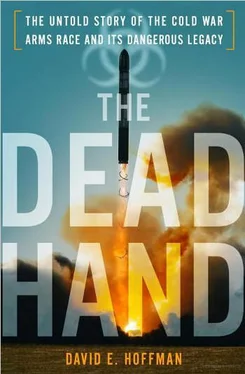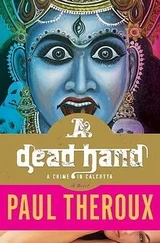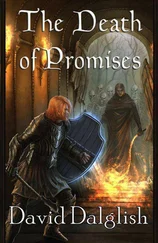In the summer of 1984, the RYAN operation seemed to expire. Gordievsky said anxiety in Moscow about nuclear war “was visibly declining.” 22Chernenko didn’t share Andropov’s sense of alarm and paranoia about nuclear attack. Although there were no arms control negotiations that year, Soviet officials protested with increasing frequency about what they called “militarization of space.” Shultz said Dobrynin brought up kosmos —the Russian word for outer space—at every meeting. 23This was aimed directly at Reagan’s Strategic Defense Initiative, although the actual program was barely getting started. By one account, that summer the program comprised two dozen people working out of a dilapidated office building in Washington. 24
Reagan’s dream got a lucky break that summer. The army, in a program started in the 1970s, was studying rocket interceptors, and created an experiment, using a test interceptor with an infrared homing device and computer. It was called the Homing Overlay Experiment. The first three tests had failed. In the fourth and last test on June 10, 1984, the interceptor was launched from Meck Island in the Kwajalein Islands, and more than one hundred miles high, it locked onto a Minuteman missile carrying a dummy warhead. The interceptor found the Minuteman in part because the dummy warhead was heated up for the test, and the Minuteman turned sideways, to be easier to detect. The missile was destroyed. The Pentagon announced the test was a stunning success. “We do know that we can pick them up and hit them,” a spokesman said. The Kremlin was rattled. 25
Reagan’s reelection campaign aired one commercial that hinted at voter fears about the arms race. It was a thirty-second spot written by the same team that created “Morning Again in America.” But this commercial had a darker undertone, one that warned of uncertainty. The goal was to acknowledge the danger but also suggest there might be a way out. The ad shows a grizzly bear wandering in the forest. “There is a bear in the woods,” the announcer says in a tone of seriousness and authority. “For some people, the bear is easy to see. Others don’t see it at all. Some say the bear is tame. Some say it’s vicious. Since no one knows, isn’t it smart to be as strong as the bear, if there is a bear?” 26
On November 6, 1984, Reagan was reelected in the largest electoral-vote landslide in U.S. history. He won 59 percent of the popular vote, carried 49 states and received 525 electoral votes to 10 for Walter Mondale.
Between the summer vacation and the election, Shultz had been talking privately to Reagan about the work of a second term. Shultz could not tell if Reagan absorbed what he said, but he kept lecturing. He told Reagan the Soviet Union was caught in an inconclusive leadership struggle, from one generation to another, bound up in a stagnating economy and “extreme distrust verging, in some instances, on paranoia” about the United States. It wasn’t clear how the leadership succession would be resolved, Shultz said, but one of the most promising candidates was a member of the younger generation, a man with a broader view—Mikhail Gorbachev. 27
————— 8 —————
“WE CAN’T GO ON LIVING LIKE THIS”
Five weeks after Reagan was reelected, Mikhail Gorbachev and his wife, Raisa, were driven from London through rolling English farmland to Chequers, the elegant official country residence of the British prime minister. Margaret Thatcher and her husband, Denis, greeted the Gorbachevs just before lunch on Sunday, December 16, 1984. It was a highly unusual gesture for a Soviet official to take his wife abroad. Gorbachev had asked Chernenko’s approval before doing so. On their arrival, Thatcher noticed Raisa had chosen a well-tailored, Western-style suit, gray with a white stripe, “just the sort I could have worn myself.” After posing at the entrance for the press photographers, with Gorbachev standing at the far left of the group next to Raisa, Thatcher very conspicuously repositioned the group so she would be standing next to Gorbachev. Then she extended a welcoming handshake. 1
For more than a year, Thatcher had been searching for clues to the next generation of Soviet leaders. Thatcher was intrigued about whether the dour older generation would give way to a new, younger field. She had enormous faith in the power of the individual, and believed that in a dictatorship that repressed individual initiative, some could still make a difference, as had dissidents Alexander Solzhenitsyn, Andrei Sakharov and others. Thatcher wondered if one person at the very top could change the Soviet system from within. In her memoir, she recalled that she was determined to “seek out the most likely person in the rising generation of Soviet leaders and then cultivate and sustain him.” Her foreign secretary, Geoffrey Howe, said Thatcher carried out a “deliberate campaign to get inside the system.” 2Thatcher remembered what Professor Archie Brown had told her at the Chequers seminar: Gorbachev was the most open and promising man in the leadership. She invited Brown to come back to No. 10 Downing Street on December 14, just before Gorbachev’s visit, to brief her again. 3
“I spotted him,” Thatcher said of Gorbachev, “because I was searching for someone like him.”
In the KGB residency in London, Oleg Gordievsky worked hard for weeks in advance of Gorbachev’s arrival. So many demands poured in from headquarters in Moscow! Gordievsky realized the KGB chiefs saw Gorbachev as a rising star and wanted to demonstrate they were behind him. “The KGB was backing him because he was a new man, a man for the future, an honest man who would fight corruption and all the other negative features of Soviet society,” Gordievsky recalled. Moscow bombarded the London residency with requests for material that could be useful for the visit: about arms control, NATO, the economy, Britain’s relations with the United States, China and Eastern Europe. Although he had never met Gorbachev, Gordievsky sensed a voracious appetite for new information. “He wanted to be brilliant, know all about Britain, and make an impression, and then come to Moscow and show everybody that after Chernenko he was the best candidate,” Gordievsky said. 4
Gordievsky was not only writing reports for Moscow, but also feeding information to his British handlers. They, too, were intensely interested in Gorbachev, the rising star. Gordievsky gave the British valuable early warning about what Gorbachev would ask and what he would say. At the same time, Gordievsky passed back to Moscow the materials he was given by the British. Gordievsky was a channel for both sides at a critical moment in history. He was almost perfect for Thatcher’s mission. The British knew what their agent was doing, but the Soviets did not.
The days of Gorbachev’s visit were frantic for Gordievsky. “Every evening we were under pressure to produce a forecast of the line the next day’s meetings would take, and this of course was impossible to discover from normal channels. I therefore went to the British and asked urgently for help: could they give me an idea of the subjects Mrs. Thatcher would raise? They produced a few possibilities, from which I managed to concoct a useful-looking memorandum; but the next day’s meeting was much more fruitful. When I asked for a steer on Geoffrey Howe, they let me see the brief which the foreign secretary would be using in his talks with Mr. Gorbachev. My English was still poor, and my ignorance was compounded by nervousness and lack of time, so that I had to concentrate hard to remember all the points.”
“Back at the station, full of excitement at my little coup , I sat down at a typewriter… and hacked out a rough draft, allegedly based on my general sources and what I had gleaned from newspapers,” Gordievsky said. He was momentarily deflated when it was rewritten by another KGB man into something much less precise. He appealed to the acting chief, Leonid Nikitenko, who saw Gordievsky’s version and sent it direct to Gorbachev, “verbatim.”
Читать дальше












